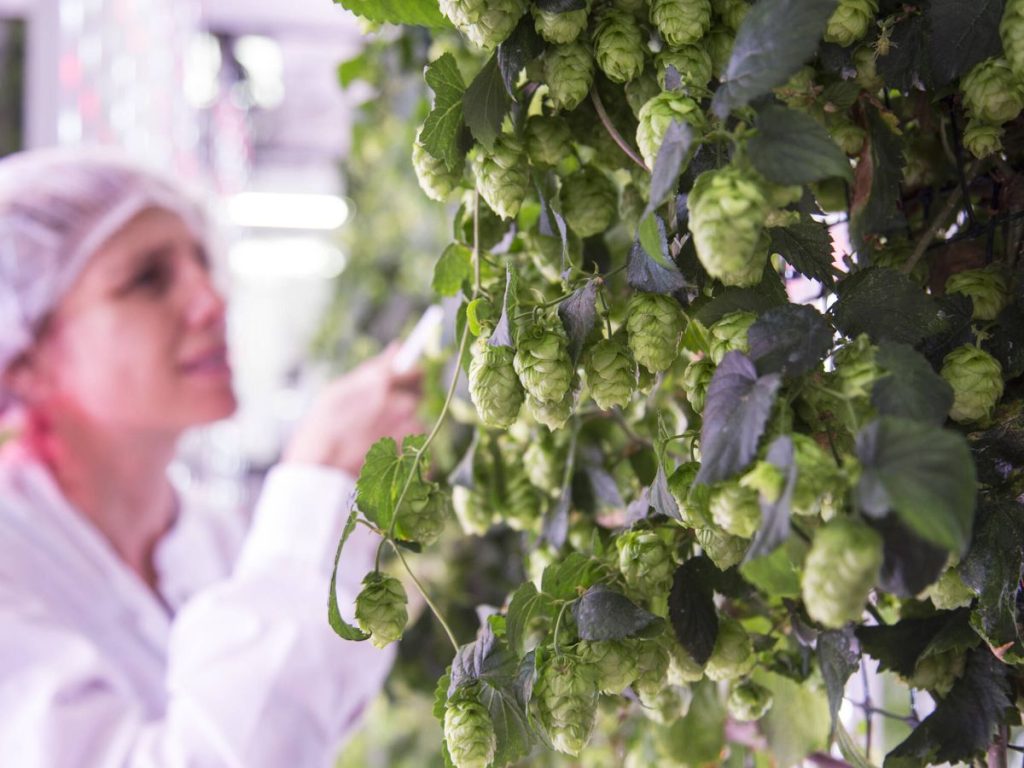Revolutionizing the Brewing Industry: Growing Hops Indoors

Ana Sáez, an agronomic engineer, and Inés Sagrario, an economist, were working on vertical vegetable cultivation when they met chemists Javier Ramiro and Antonio Rojas at an entrepreneurship event in Madrid. While Ana and Inés were selling pesticide-free lettuce, they struggled to attract a loyal customer base due to their higher prices. On the other hand, Javier and Antonio were making a living by cultivating microgreens, the small plant sprouts commonly used in haute cuisine. “We decided to merge our separate projects and started focusing on crops susceptible to climate risks,” says Sagrario via video conference. They found that hops were the Achilles’ heel of a massive industry – brewing.
In the world, 80% of hops are grown in the Pacific Northwest of North America and in southern Germany. “Simplifying a lot, there are two main types of hop varieties: some responsible for bitterness and others for aroma. New hybrids have been developed for the bitter varieties, which are relatively coping well with climate change. However, the aromatic varieties, which give beer its characteristic flavor, are facing the most problems.”
In 2018, Ekonoke started operating from Alcobendas, the company with the aim of stabilizing hop cultivation by reproducing the conditions for its growth indoors using hydroponics. They don’t want hops to travel; instead, they offer breweries the opportunity to grow their own plants in covered spaces using wastewater and excess CO2 from the brewing process. It is, of course, a much more expensive cultivation method, but they explain that this raw material accounts for a tiny percentage of the cost of brewing beer. Thus, brands can offset the cost by highlighting their use of locally sourced ingredients.
The team at Hijos de Ribera, the company behind Estrella Galicia, found the idea intriguing. “They quickly committed to the project, financing an investment that allowed us to cultivate hops in suitable conditions.” They buy the current production (only 20 kilos last year) and have set up a warehouse in Chantada (Lugo) from which they will harvest a ton of hops this year. This facility will be a precursor to their industrial production, where they hope to obtain between 70,000 and 80,000 kilos in three annual harvests. With their technology, they need 15 times less water to obtain the same amount of plant, which they claim is 100% natural, without pesticides or fungicides.
The journey hasn’t been easy. They have received public support from Enisa and CDTI. “When we obtained the Enisa loan, nobody else was financing us. It is a very important instrument,” Sagrario acknowledges. With a team of 12 professionals and five million in capital raised, they believe they can achieve financial stability by 2027. Until then, they have to navigate with a small turnover (100,000 euros) and overcome numerous obstacles. But they remain optimistic: just as a hop plant can reach seven meters in height, they hope to go far with their brewing flowers.
With their innovative approach to hop cultivation, Ekonoke is not just revolutionizing the brewing industry but also paving the way for sustainable and localized ingredient sourcing in beer production.
